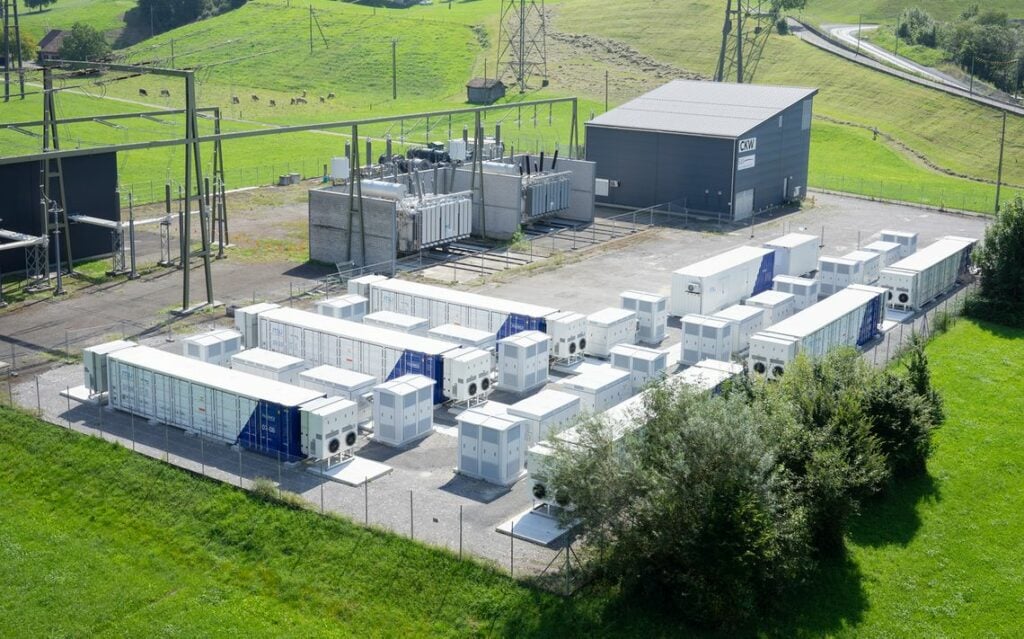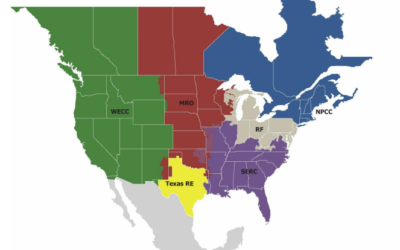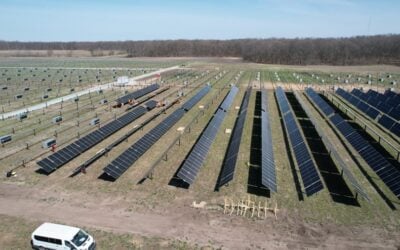
Construction is set to begin soon on a 100MW/200MWh battery storage project in Arzberg, Germany, through developer MW Storage and asset manager Reichmuth & Co Infrastructure.
In the southeastern part of Germany near the border with Czechia, the project in Arzberg will be on the higher end of grid-scale battery energy storage system (BESS) project sizes in the German market, which is seeing something of a return to activity in 2022 and this year, after a long lull.
Enjoy 12 months of exclusive analysis
- Regular insight and analysis of the industry’s biggest developments
- In-depth interviews with the industry’s leading figures
- Annual digital subscription to the PV Tech Power journal
- Discounts on Solar Media’s portfolio of events, in-person and virtual
The imminent start of construction was announced by Weil and MLL Legal, two companies which advised MW Storage on the developer’s formation of a joint venture (JV) to work on the project with infrastructure investment manager Reichmuth.
With MW Storage and Reichmuth as majority shareholders, the E.On-owned distribution network provider Bayernwerk and municipal power production consortium ZukunftsEnergie Nordostbayern (ZENOB) are also involved in the JV. The two majority owners are both headquartered in Switzerland, while the energy companies are both local to the Bavarian region.
MW Storage is itself backed by an asset manager, Swiss KMU. The developer put its first BESS project into operation in October 2020 in the Swiss municipality of Ingenbohl. The company noted at the time that the 20MW/18MWh project, performing frequency regulation for transmission system operator (TSO) Swissgrid, was funded without subsidies or public assistance.
The company has done a similarly-sized project in Finland which went into operation a year after Ingenbohl, but to date those are the only two listed as part of its portfolio on MW Storage’s website.
Global system integrator Fluence – which recently showed quarterly profit in financial results for the first time since its IPO – is MW Storage’s BESS supplier, having worked on the companies’ previous two projects.
Germany’s utility-scale BESS market seeing bigger projects
The Arzberg project was claimed to be the biggest BESS facility in Germany, according to the announcement from legal firm Weil.
It likely will be, but only retain that title for a short time. Germany’s utility-scale BESS market is finally back on the rise and it is perhaps primed to accelerate, given growing commitments at national and European Union (EU) level to renewable energy.
The main economic opportunities in Germany are for frequency regulation ancillary services and energy trading on the wholesale market. While the market enjoyed a short boom in the mid-2010s as an early adopter of battery storage for frequency regulation, opportunities in the main market, primary control reserve (PCR) quickly became saturated.
Growing shares of renewable energy and growing volatility in electricity markets across Europe in the wake of the Russian invasion of Ukraine pushing up gas prices, have amplified the fundamental drivers for battery storage, while a waiver on fees storage operators in Germany were being charged for their use of the grid has been extended for three years. In addition to PCR, there is now also a market for secondary reserve (aFFR) which is pan-European, being rolled out across the continent’s grids.
A feature article for our quarterly journal PV Tech Power (Vol.32) last year examined whether Germany’s utility-scale market was due for revival, despite having seen just 32MW of large-scale BESS deployed in 2021.
The German market also saw some uplift from the launch of Innovation Tenders – government-backed reserve auctions for projects that combined two low-carbon technologies, which has resulted almost exclusively in contracts for solar-plus-storage plants – and so-called ‘NetzBooster’ (‘GridBooster’) projects, which are individual large-scale battery assets deployed to directly support the transmission network.
One of those GridBoosters, to be delivered by Fluence, is 250MW/250MWh and could come online subject to regulatory approvals by 2025 while Fluence was awarded two more, each of 100MW/100MWh, in June this year.
In November, developer Kyon Energy got approval for a 137.5MW/275MWh BESS project in Germany’s Lower Saxony region, and while it might not be the biggest BESS in Europe as Kyon claimed, it was the biggest in Germany to date.
Another developer, Eco Stor, however, is also planning two projects of 300MW/600MWh each in the country. According to an expert report recently commissioned by Eco Stor, wholesale market revenues earned by wind and solar assets in the country could be increased so much by the addition of a forecasted 50GW of storage on the grid by 2037 that it could save taxpayers €3 billion (US$3.3 billion) in green energy subsidies.
The MW Storage-Reichmuth JV project in Arzberg is scheduled to come online in early 2025.
As of mid-2022, Germany’s biggest BESS project was Lausitz Battery Energy Storage System (60MW/52MWh), at a coal plant operated by generator LEAG.
Energy-Storage.news’ publisher Solar Media will host the 9th annual Energy Storage Summit EU in London, 20-21 February 2024. This year it is moving to a larger venue, bringing together Europe’s leading investors, policymakers, developers, utilities, energy buyers and service providers all in one place. Visit the official site for more info.






